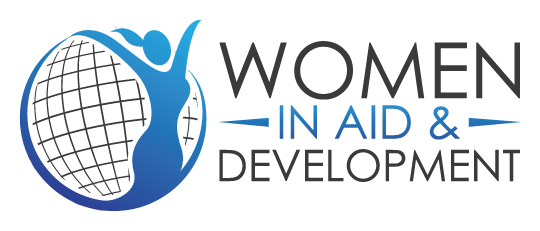Intersectionality in Practice 2023 Event Recap
Our July networking events focused on Intersectionality in Practice with our speakers sharing practical experiences in embedding intersectional approaches to programs and projects in the sector.
In the diverse and complex world of aid, development, and humanitarian work, we must understand the concept and importance of intersectionality and how people’s lives are shaped by their identities, relationships, and social factors. These create intersecting forms of privilege and oppression depending on a person’s context and existing power structures such as patriarchy, ableism, colonialism, imperialism, homophobia, and racism.
Embracing intersectionality in the sector requires an understanding of how proposed projects and programs may deepen inequities, or lead to specific forms of marginalisation that are not captured by a single characteristic and finding intersectional approaches in policy-making and service delivery that increase stakeholder collaboration and are designed to improve equity and transform social structures.
Events were held in Melbourne, Sydney and Brisbane with Canberra hosted online. Here is a recap from each city!
Melbourne
Our July WiAD event in Melbourne, saw a lively and engaging discussion on ‘Intersectionality in Practice’ with two absolute veterans of the sector, specialising in this topic, each with around 30 years of experience.
Navanita Bhattacharya is the Director of the Inclusion, Justice and Transformation Practice at Tetra Tech International Development; while Lana Woolf is a freelance Social Inclusion and Participation expert and Senior Advisor for Edge Effect, of which she is also a co-founder.
Lana and Navanita were welcomed to the evening, with around 15 people in attendance, and with drinks in hand and food offerings spread around, everyone settled in to listen to these women share their stories of how they not only came into the development sector but more particularly how and why intersectionality drew them in as a focus for their development work.
The discussion ranged from Navanita’s experience growing up in India where choosing to work and live in local villages after her studies, grounded her thinking and perspectives on development overall, but particularly on the value of intersectionality and its need to be from a community-based approach in practice.
Lana also spoke of her experiences, both in Indonesia and working with indigenous communities here in Australia, with both women emphasising the need to eliminate what they referred to as the ‘silofication’ of development approaches and practices, where a more effective practice would be recognising, valuing and utilising the crossover or intersecting of different fields within development.
The evening ended far too soon, despite the chat going for almost 2 hours, with a strong Q&A session seeing it out, but with the feeling that much more was there to be discussed and shared!
Jill Scanlon - WiAD Communications Director
Sydney
We were again fortunate to be able to hold our Sydney event at the Canva Café in Surry Hills and we thank them for continuing to make this space available to non-profit organisations like WiAD. The event was again well-attended, with about 20 people joining us – including a few new faces. Hopefully, the healthy turn-outs in 2023 represent a positive trajectory for in-person events following the COVID-19 lockdowns.
Our speaker was Tamara Megaw, a Senior Research Consultant at UTS’ Institute for Sustainable Futures and a PhD candidate at the University of Sydney, who spoke on the topic ‘Intersectionality in Practice’ from the perspective of her own work. In her remarks, and in response to the many questions from the floor, we traversed how NGOs can approach intersectionality in their programming (and how funders can support them), and future possibilities for intersectional approaches.
Michelle Imison - Sydney City Leader
Brisbane
We were pleased to hear the sharing of the guest speaker Michelle Dunn, with WiAD and QIDN members in Brisbane at the Intersectionality in Practice event. Michelle noted that the best way to do intersectionality was to listen.
Michelle currently works in the UQ International Development unit as a Senior Manager, Business Development and Engagement, GEDSI and Advisory. She has over 30 years of experience managing complex, multi-stakeholder projects in the public, private and university sectors. She is a project management, risk, leadership, and cross-cultural communication specialist with expertise in Gender, Peace, Security and Pacific engagement.
Shoutout to the Brisbane volunteer Yunrui Deng and WiAD members for coming along!
Yunrui Deng - WiAD Communications Volunteer
Canberra
Despite having to be moved online, the turnout to hear from Tina Dixson was wonderful.
Tina (she/her) is a queer feminist activist and PhD candidate working on the issues of violence against women and queer refugee women. Tina and her partner were involved in the establishment of the Forcibly Displaced People Network, the first Australian registered LGBTIQ+ refugee-led organisation working to ensure that LGBTIQ+ displaced people can achieve equitable settlement outcomes.
Tina shared her experiences of working in social policy focusing on LGBTIQ+ communities with WiAD Chair, Chris Franks.
————————————————————————————————————————————
A massive thank you to our speakers - Navanita Bhattacharya, Lana Wolf, Michelle Dunn, Tamara Megaw, and Tina Dixson- all those who attended and of course, our city leaders, who so generously shared their time to ensure that all events were a success.
We hope to see you all again at our next series of events in October!
